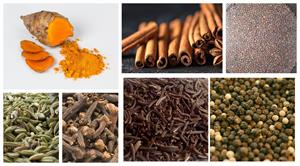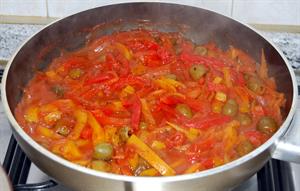
PUMPA - SMART LEARNING
எங்கள் ஆசிரியர்களுடன் 1-ஆன்-1 ஆலோசனை நேரத்தைப் பெறுங்கள். டாப்பர் ஆவதற்கு நாங்கள் பயிற்சி அளிப்போம்
Book Free Demo In India, spices are the soul of food. When we think of spices, we think of tasty and healthy food. Many of the spices in our food are added to balance nutrition and to keep us healthy. They add flavour and nutrients to dishes without fat or calories. Spices like cumin, mustard, pepper, cloves, fennel, cinnamon and turmeric are very important in Indian food.
When it comes to Indian food, the first thing that comes to many people’s minds is probably ‘Spicy curry’. People say curry comes from the Tamil word 'kari'. In Tamil, kari means sauce. It is something that is cooked with a roasted or powdered mixture of spices, condiments and herbs. This mixture of spices can be different in different places. It can be mild or it can be spicy and pungent. Flowers, leaves, roots, bark, seeds and bulbs, are combined in many different ways to produce a great variety of flavours: sweet, sharp, hot, sour, spicy, aromatic, tart, mild, fragrant or pungent. When cooked with rice, meat, fish, or vegetables, the spices give the dish a special, savoury taste. It makes us want to eat more.
But apart from delicious food, spices also bring to mind adventure. Many of the most exciting voyages of modern history were made to conquer the spice trade and the race to become its master. The colonization of the Americas and Asia had its roots in the spice trade. In 1492 Columbus went West to find India and pepper but ran into America and the chilli. Vasco da Gama, six years later, went around Africa to reach Kozhikode, the home of pepper. These voyages ended the very profitable trade that the Arabs and Romans had built up over the centuries. They set the stage for a new world.
Explanation:
In Indian food, spices play a vital role. Spices are considered to be the "soul" of Indian cuisine. Spices remind us of two things:
- Tasty food.
- Healthy food.
Spices are added in the food:
- To balance the nutrition.
- To keep us healthy.
- There are no calories or fat content in any spices - hence it adds taste without adding any unhealthy substances.
The essential Indian spices are cumin, mustard, pepper, cloves, fennel, cinnamon and turmeric.

Clockwise - Turmeric, cinnamon, mustard, pepper, cumin, cloves and fennel.
When we say "Indian food" - the first thought that comes to people's mind are "spicy curries". Curry comes from the Tamil word "Kari" which means sauce. A sauce or Kari is something which is cooked with a mixture of spices, flavours and herbs. This mixture of spices keeps changing according to places and people's tastes. Some people prefer mild spices, while others prefer strong flavours. In Indian dishes, a variety of flowers, leaves, roots, stems, seeds, and bulbs are combined to produce many items with different flavours like - sweet, pungent, hot, sour, spicy, fragrant, sharp, mild etc. Spices go well with any food - rice, meat, vegetables, fish etc. It gives the dishes a unique taste that keeps people wanting more of the food.

A spicy Indian curry!
Apart from making the food tasty, spices also play with our minds. Many merchants tried to master the spice trade since there was a huge competition in the spices industry. America and Asia were continents that were colonized due to the spice trade. Colonization means the process of settling among and establishing control over the native people of an area.
In 1492, a merchant sailor named Columbus wanted to find India and buy pepper; but he went West and landed in America and found the spice chilli. After six years (in 1498), another sailor Vasco da Gama travelled around Africa and finally reached Kozhikode in Kerala, to find pepper. Arabs and Romans were doing successful business in spices till then. After the above two voyages, the Arabs and Roman trade were ended, and a whole new stage was set for the spice trade.

*Columbus and Vasco da Gama - changed the entire spice trade scene!
Meanings of difficult words:
No. | Words | Meanings |
1 | aromatic | having a pleasant and distinctive smell |
2 | condiments | a substance such as salt, mustard, or pickle that is used to add flavour to food |
3 | tart | sharp or acid in taste |
4 | pungent | having a sharply strong taste or smell |
5 | savoury | belonging to the category that is salty or spicy |
6 | voyages | a long journey involving travel by sea |
Reference:
State Council of Educational Research and Training (2019). Term-1 English Standard-6. Spices of India (pp. 148-153). Published by the Tamil Nadu Textbook and Educational Services Corporation.
*Image courtesy - https://en.wikipedia.org/wiki/Vasco_da_Gama#/media/File:Vasco_da_Gama_-_1838.png;
https://commons.wikimedia.org/wiki/File:Christopher_Columbus.PNG